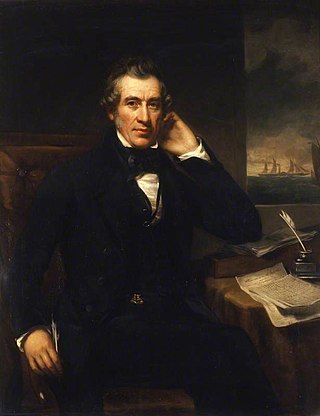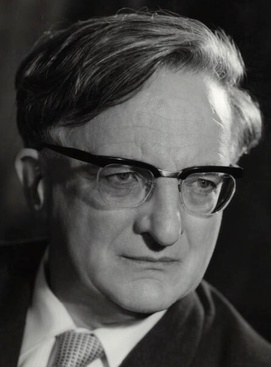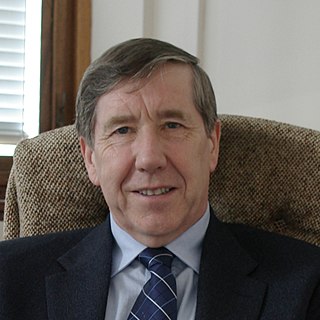Related Research Articles

Mechanical engineering is the study of physical machines that may involve force and movement. It is an engineering branch that combines engineering physics and mathematics principles with materials science, to design, analyze, manufacture, and maintain mechanical systems. It is one of the oldest and broadest of the engineering branches.

The University of Manchester Institute of Science and Technology (UMIST) was a university based in the centre of the city of Manchester in England. It specialised in technical and scientific subjects and was a major centre for research. On 1 October 2004, it amalgamated with the Victoria University of Manchester to produce a new entity called the University of Manchester.

Bollington is a town and civil parish in Cheshire, England, to the east of Prestbury. In the Middle Ages, it was part of the Earl of Chester's manor of Macclesfield and the ancient parish of Prestbury. In 2011, it had a population of 8,310.

Macclesfield was, from 1974 to 2009, a local government district with borough status in Cheshire, England. It included the towns of Bollington, Knutsford, Macclesfield and Wilmslow and within its wider area the villages and hamlets of Adlington, Disley, Gawsworth, Kerridge, Pott Shrigley, Poynton, Prestbury, Rainow, Styal, Sutton and Tytherington.

Julia Elizabeth King, Baroness Brown of Cambridge is a British engineer and a crossbench member of the House of Lords, where she chairs the Select Committee on Science and Technology. She is the incumbent chair of the Carbon Trust and the Henry Royce Institute, and was the vice-chancellor of Aston University from 2006 to 2016.

Sir William Fairbairn, 1st Baronet of Ardwick was a Scottish civil engineer, structural engineer and shipbuilder. In 1854 he succeeded George Stephenson and Robert Stephenson to become the third president of the Institution of Mechanical Engineers.

Bertram Vivian Bowden, Baron Bowden was an English scientist and educationist, particularly associated with the development of UMIST as a successful university.
Richard Leslie Hills MBE was an English historian and clergyman who wrote extensively on the history of technology, particularly steam power. He helped to found Manchester's Science & Industry Museum, where he was its first lecturer-in-charge.
Applied mechanics is the branch of science concerned with the motion of any substance that can be experienced or perceived by humans without the help of instruments. In short, when mechanics concepts surpass being theoretical and are applied and executed, general mechanics becomes applied mechanics. It is this stark difference that makes applied mechanics an essential understanding for practical everyday life. It has numerous applications in a wide variety of fields and disciplines, including but not limited to structural engineering, astronomy, oceanography, meteorology, hydraulics, mechanical engineering, aerospace engineering, nanotechnology, structural design, earthquake engineering, fluid dynamics, planetary sciences, and other life sciences. Connecting research between numerous disciplines, applied mechanics plays an important role in both science and engineering.
Dr. Ramulu Mamidala is a mechanical engineering professor at University of Washington. Usually goes by the name 'Ram', or 'M.R.', he is recognized for his leadership and outstanding record in promoting collaborative education and research with industry. He is currently the director of Manufacturing Science and Technology Laboratory (MSTL) at Mechanical Engineering Department, University of Washington. He has designed and developed manufacturing methods for a wide range of systems, from the B2 bomber to the Boeing 787. Additionally, in collaboration with industry, he established and directed two interdisciplinary graduate educational programs in engineering and management and a certificate program in composites tooling and manufacturing. His exemplary collaborative efforts motivated working engineers to pursue doctoral studies and he is a leader in using emerging technologies in distance education to reach non-traditional students.
The Faculty of Science and Engineering (FSE) is one of the three faculties that comprise the University of Manchester in northern England. Established in October 2004, the faculty was originally called the Faculty of Engineering and Physical Sciences. It was renamed in 2016, following the abolition of the Faculty of Life Science and the incorporation of some aspects of life sciences into the departments of Chemistry and Earth and Environmental Sciences. It is organised into 2 schools and 9 departments: Chemical Engineering and Analytical Science; Chemistry; Computer Science; Earth and Environmental Sciences; Physics and Astronomy; Electrical & Electronic Engineering; Materials; Mathematics; and Mechanical, Aerospace and Civil Engineering.

Sir Charles Edward Inglis, was a British civil engineer. The son of a medical doctor, he was educated at Cheltenham College and won a scholarship to King's College, Cambridge, where he would later forge a career as an academic. Inglis spent a two-year period with the engineering firm run by John Wolfe-Barry before he returned to King's College as a lecturer. Working with Professors James Alfred Ewing and Bertram Hopkinson, he made several important studies into the effects of vibration on structures and defects on the strength of plate steel.
The Department of Mechanical, Aerospace & Civil Engineering at the University of Manchester was formed from three departments in the 2004 merger between the Victoria University of Manchester (VUM) and the University of Manchester Institute of Science and Technology (UMIST). The merged departments were the Department of Civil and Construction Engineering which was joint between both universities, the Department of Mechanical Aerospace and Manufacturing Engineering at UMIST and the Manchester School of Engineering at VUM.
Alan Arthur Wells was a British structural engineer.
The A. A. Griffith Medal and Prize was awarded annually from 1965 to 2021 by the Institute of Materials, Minerals and Mining in commemoration of Alan Arnold Griffith.
Richard Edwin Dolby, OBE, HonDMet, FREng, FIMMM, HonFWeldI is a metallurgist and former Director of Research and Technology at The Welding Institute (TWI) in Cambridge, UK. He is a past President at the Institute of Materials, Minerals and Mining and a current Distinguished Research Fellow at the University of Cambridge Department of Materials Science and Metallurgy.
Michael Rex Horne was an English structural engineer, scientist and academic who pioneered the theory of the Plastic Design of Structures.

Tony Kinloch is a British academic and educator. He is a faculty member at the Department of Mechanical Engineering of Imperial College London and is a visiting professor at the Universities of New South Wales and Sydney.

Richard H. Gallagher was an American civil and aerospace engineer, researcher and president of Clarkson University from 1988 to 1995.

Abílio De Jesus is a Portuguese researcher, professor and engineer in the field of the fatigue, fracture and integrity of materials and structural components.
References
- ↑ "Royal Society" . The Independent. London. 13 March 1993. Archived from the original on 12 May 2022.
- ↑ "Inspirational Alumni Members". The King's School Chester. Archived from the original on 15 December 2011. Retrieved 2 December 2011.
- ↑ http://menmedia.co.uk/macclesfieldexpress/news/s/1054473_triple_honours_for_maxonians [ dead link ]